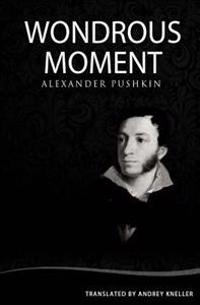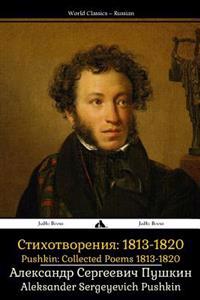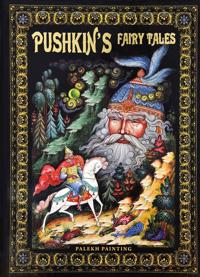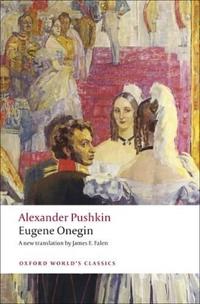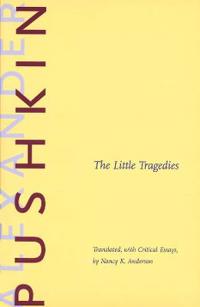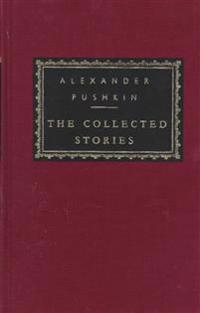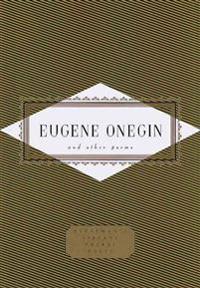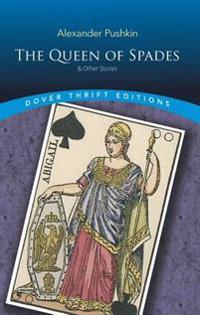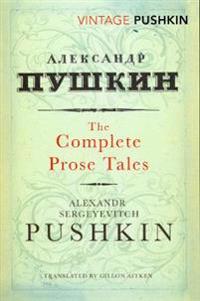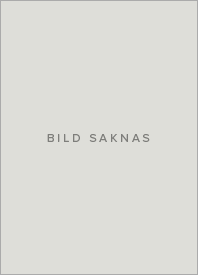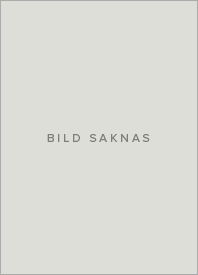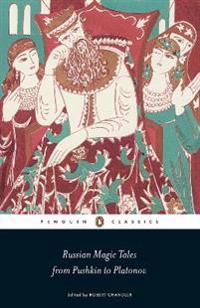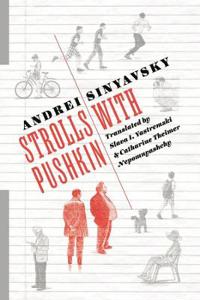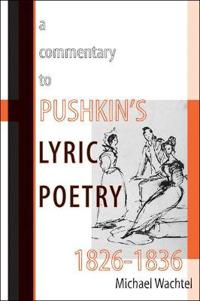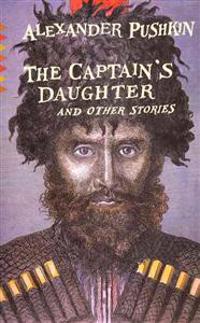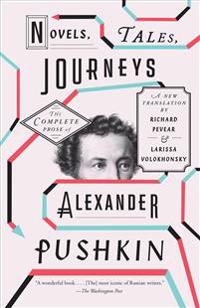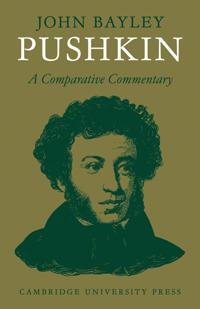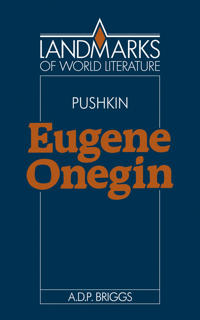Wondrous Moment: Selected Poetry of Alexander Pushkin (Häftad)
avAndrey Kneller, Alexander Pushkin, Aleksandr Sergeevich Pushkin
ISBN: 9781440439728 - UTGIVEN: 2008-10Pushkin: Collected Poems 1813-1820: Sobrannie Sochineniy: Stikhotvoreniya 1813-1820 (Häftad)
avAleksander Sergeyevich Pushkin
ISBN: 9781784350864 - UTGIVEN: 2014-05Pushkin s Fairy Tales. Palekh Painting (Inbunden)
avAleksander Pushkin
ISBN: 9785938938670 - UTGIVEN: 2013-01Alexander Pushkin is a great Russian poet and novelist, the creator of modern literary Russian. A genius of poetry, he embodied Russian national consciousness and became the pride of his country. Pushkin's books are printed in millions of copies; his works have been translated into all major languag[...]
Eugene Onegin (Pocket)
avAleksandr Sergeevich Pushkin, James E. Falen, Aleksandr Sergeevich Pushkin
ISBN: 9780199538645 - UTGIVEN: 200903Eugene Onegin is the master work of the poet whom Russians regard as the fountainhead of their literature. Set in 1820s imperial Russia, Pushkin's novel in verse follows the emotions and destiny of three men - Onegin the bored fop, Lensky the minor elegiast, and a stylized Pushkin himself - and the [...]
The Little Tragedies (Pocket)
avAleksandr Sergeevich (TRN) Pushkin, Nancy K. (TRN) Anderson, Aleksandr Sergeevich (TRN) Pushkin
ISBN: 9780300080278 - UTGIVEN: 2000-04In a major burst of creativity, Russian poet Alexander Pushkin during just three months in 1830 completed Eugene Onegin, composed more than thirty lyric poems, wrote several short stories and folk tales, and penned the four short dramas in verse that comprise the "little tragedies." The "little trag[...]
The Collected Stories [With Ribbon] (Inbunden)
avAleksandr Sergeevich Pushkin, Alexander Pushkin
ISBN: 9780375405495 - UTGIVEN: 199905Pushkin's prose tales are the foundation stones on which the great novels of Turgenev, Tolstoy, and Dostoevsky were built, but they are also brilliant and fascinating in their own right. In both prose and verse, Pushkin was one of the world's great storytellers: direct and dramatic, clear-sighted, v[...]
Eugene Onegin and Other Poems: And Other Poems [With Ribbon] (Inbunden)
avAlexander Sergeyevich Pushkin, Pushkin
ISBN: 9780375406720 - UTGIVEN: 1999-05Eugene Onegin: A Novel in Verse (Pocket)
avPushkin, Aleksandr Sergeevich, Pushkin, Alexander Sergeyevich
ISBN: 9780465020942 - UTGIVEN: 2000-08-21Fans of Hofstadter's Le Ton beau de Marot will be delighted to see his meticulous theories of translation put into practice in what seems destined to become the definitive English-language version of Eugene Onegin. It is sure to bring new and deserving readers to this neglected literary jewel.[...]
The Queen of Spades and Other Stories (Pocket)
avAleksandr Sergeevich Pushkin, T. Keane, Aleksandr Sergeevich Pushkin
ISBN: 9780486280547 - UTGIVEN: 199407This volume contains new translations of four of Pushkin's best works of fiction. The Queen of Spades has long been acknowledged as one of the world's greatest short stories, in which Pushkin explores the nature of obsession. The Tales of Belkin are witty parodies of sentimentalism, while Peter the [...]
Complete Prose Tales (Storpocket)
avAleksandr Sergeevich Pushkin
ISBN: 9780099529477 - UTGIVEN: 200810This title is translated, annotated and introduced by Gillon Aitken. Beyond his perfect expression of Russian mood, Pushkin's universality of vision has made him a permanent place in the history of world literature. Gillon Aitken's distinguished translation is the only volume that contains all his p[...]
Tales of Belkin and Other Prose Writings (Pocket)
avPushkin, Aleksandr Sergeevich
ISBN: 9780140446753 - UTGIVEN: 1998-01-29Alexander Pushkin was Russia's first genius in poetry and prose, who, according to Dostoyevsky, "showed us a whole gallery of genuinely beautiful Russian characters which he discovered in the Russian people". After completing his epic poem Eugene Onegin, Pushkin retired to his family's house in the [...]
Eugene Onegin (Storpocket)
avAlexander Pushkin
ISBN: 9780140448108 - UTGIVEN: 2008-09"Eugene Onegin" is the master work of the poet whom Russians regard as the fountain head of their literature. Set in 1820s Russia, Pushkin's verse novel follows the fates of three men and three women. Engaging, full of suspense, and varied in tone, it contains a large cast of characters and offers t[...]
Russian Short Stories from Pushkin to Buida (Storpocket)
avRobert Chandler
ISBN: 9780140448467 - UTGIVEN: 2005-05From the reign of the Tsars in the early 19th century to the collapse of the Soviet Union and beyond, the short story has long occupied a central place in Russian culture. Included are pieces from many of the acknowledged masters of Russian literature - including Pushkin, Turgenev, Dostoyevsky, Tols[...]
Russian Magic Tales from Pushkin to Platonov (Häftad)
ISBN: 9780141442235 - UTGIVEN: 201212'She turned into a frog, into a lizard, into all kinds of other reptiles and then into a spindle.' In these tales, young women go on long and difficult quests, wicked stepmothers turn children into geese and tsars ask dangerous riddles, with help or hindrance from magical dolls, cannibal witches, ta[...]
The Queen of Spades and Other Stories (Pocket)
avAleksandr Sergeevich Pushkin
ISBN: 9780199538652 - UTGIVEN: 2009-03-25This volume contains new translations of four of Pushkin's best works of fiction. The Queen of Spades has long been acknowledged as one of the world's greatest short stories, in which Pushkin explores the nature of obsession. The Tales of Belkin are witty parodies of sentimentalism, while Peter the [...]
Boris Godunov And Other Dramatic Works (Pocket)
avAlexander Pushkin
ISBN: 9780199554041 - UTGIVEN: 2009-08-27James E. Falen's verse translation consists of Boris Godunov, A Scene from Faust, the four Little Tragedies and Rusalka. It is accompanied by a penetrating Introduction by Caryl Emerson on Russia's most cosmopolitan playwright.[...]
Strolls With Pushkin
ISBN: 9780231180801 - UTGIVEN: 2016-12Andrei Sinyavsky wrote Strolls with Pushkin while confined to Dubrovlag, a Soviet labor camp, smuggling the pages out a few at a time to his wife. His irreverent portrait of Pushkin outraged migr s and Soviet scholars alike, yet his "disrespect" was meant only to rescue Pushkin from the stifling cu[...]
Strolls with Pushkin (häftad)
ISBN: 9780231180818 - UTGIVEN: 2016-12Andrei Sinyavsky wrote Strolls with Pushkin while confined to Dubrovlag, a Soviet labor camp, smuggling the pages out a few at a time to his wife. His irreverent portrait of Pushkin outraged 'migr's and Soviet scholars alike, yet his "disrespect" was meant only to rescue Pushkin from the stifling cu[...]
A Commentary to Pushkin's Lyric Poetry, 1826-1836
ISBN: 9780299285449 - UTGIVEN: 2011-11Alexander Pushkin's lyric poetry--much of it known to Russians by heart--is the cornerstone of the Russian literary tradition, yet until now there has been no detailed commentary of it in any language. Michael Wachtel's book, designed for those who can read Russian comfortably but not natively, prov[...]
The Captain's Daughter: And Other Stories (Häftad)
avAlexander Pushkin
ISBN: 9780307949653 - UTGIVEN: 201208Famous for his enormously influential poetry and plays, Alexander Pushkin is also beloved for his short stories. This collection showcases his tremendous range, which enabled him to portray the Russian people through romance, drama, and satire. The sparkling humor of the five "Tales of Belkin" contr[...]
Novels, Tales, Journeys: The Complete Prose of Alexander Pushkin (häftad)
ISBN: 9780307949882 - UTGIVEN: 2017-10Universally acknowledged as Russia's greatest poet, Pushkin wrote with the rich, prolific creative powers of a Mozart or a Shakespeare. His prose spans a remarkable range, from satires to epistolary tales, from light comedies to romantic adventures in the manner of Sir Walter Scott, from travel narr[...]
Novels, Tales, Journeys: The Complete Prose of Alexander Pushkin
ISBN: 9780307959621 - UTGIVEN: 2016-11From the award-winning translators: the complete prose narratives of the most acclaimed Russian writer of the Romantic era and one of the world's greatest storytellers.
The father of Russian literature, Pushkin is beloved not only for his poetry but also for his brilliant stories, which range fr[...]Pushkin: A Comparative Commentary (Häftad)
avJohn Bayley
ISBN: 9780521290333 - UTGIVEN: 197511This digitally reprinted edition of Pushkin: A Comparative Commentary has the same content as the original 1971 edition. Professor Bayley, in this first critical assessment in English of the whole range of Pushkin's writing, examines his achievement in relation to Russian literature and the European[...]
Alexander Pushkin: Eugene Onegin (Häftad)
avA. D. P. Briggs
ISBN: 9780521386180 - UTGIVEN: 200809This is a lively and readable guide to Alexander Pushkin's novel in verse Eugene Onegin, a landmark of European Romanticism, and arguably the best of all Russian poetry. Professor Briggs addresses the question of how such remarkable poetry can have been composed about a rather banal plot, and consid[...]

